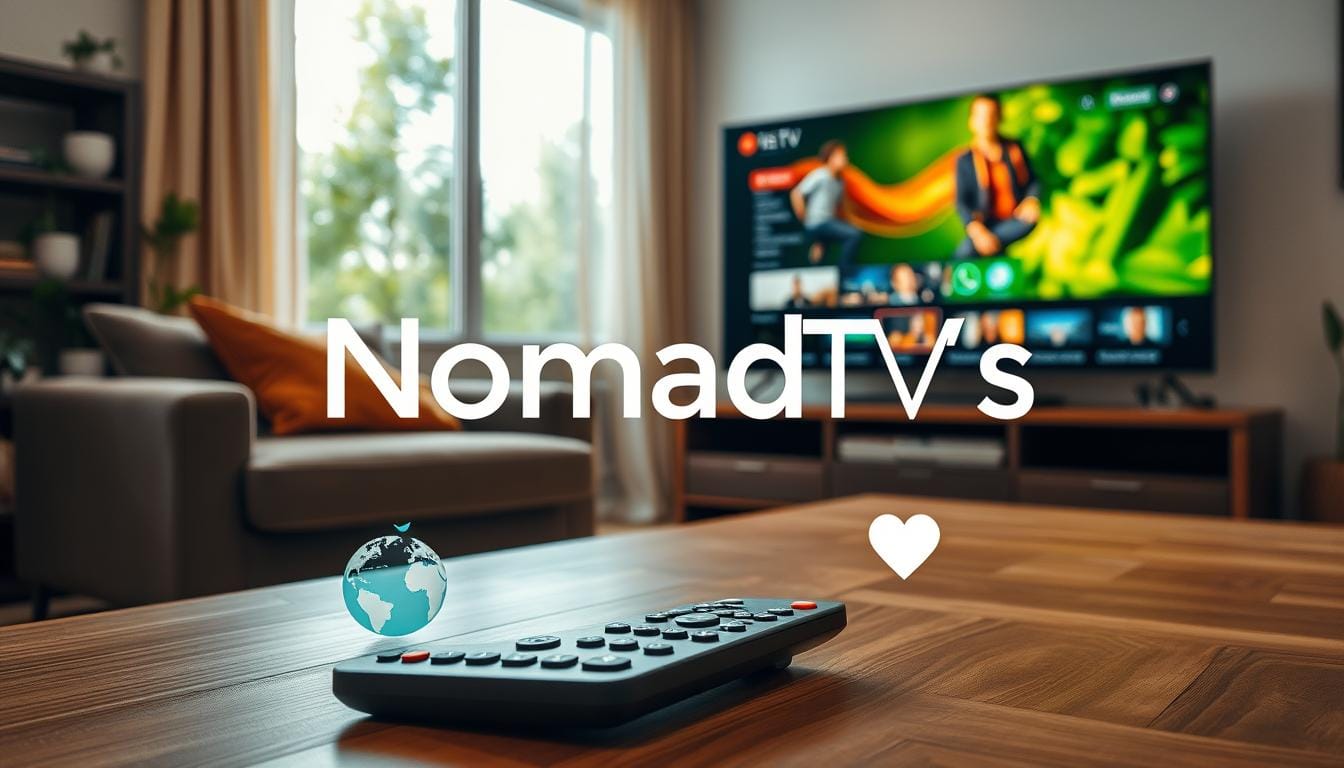Streaming technology has taken the world by storm, and IPTV is at the forefront of this revolution. But with great power comes great responsibility. The moral implications of IPTV have sparked heated debates among tech enthusiasts, legal experts, and everyday users. In this article, we’ll dive deep into the ethical dilemmas surrounding IPTV and explore how it affects our digital landscape.
Picture this: you’re sitting on your couch, remote in hand, ready to binge-watch your favorite shows. But have you ever stopped to think about the moral and legal aspects of the content you're streaming? IPTV has changed the way we consume media, but it’s not without its controversies. From copyright issues to privacy concerns, there’s a lot to unpack.
This article aims to shed light on the moral IPTV landscape, offering insights into its benefits, risks, and the ethical dilemmas it presents. So, grab a cup of coffee, and let’s get started on this enlightening journey!
Read also:8301 Sunset Boulevard Los Angeles California The Ultimate Guide To Hollywoodrsquos Iconic Address
What Exactly is IPTV?
IPTV, or Internet Protocol Television, is the delivery of TV content over the internet. It’s not your traditional cable TV; instead, it streams live TV, movies, and other media directly to your devices. The concept is simple: you connect to a service provider, and they deliver the content to your screen. But the simplicity of IPTV masks a complex web of legal and ethical considerations.
For many, IPTV represents freedom. It allows users to access a vast array of content without the restrictions of traditional broadcasting. However, this freedom can sometimes lead to questionable practices, such as unauthorized sharing of copyrighted material. As we delve deeper, you’ll see how this technology walks a fine line between innovation and infringement.
Why Moral IPTV Matters
The moral implications of IPTV are vast and varied. At its core, IPTV challenges the traditional business models of content creators and broadcasters. When users access IPTV services that bypass legal channels, it raises questions about fairness, compensation, and intellectual property rights.
Think about it: if everyone streamed content illegally, where would that leave the artists, filmmakers, and producers who pour their hearts into creating these works? The moral IPTV debate isn’t just about legality; it’s about respecting the work of others and ensuring they’re fairly compensated for their efforts.
Understanding the Legal Landscape
One of the biggest concerns with IPTV is its legality. In many countries, unauthorized IPTV services are considered piracy. This means that users who subscribe to such services could be breaking the law. But the legal landscape isn’t always black and white. Some argue that current copyright laws are outdated and need to evolve with technology.
Here are some key points to consider:
Read also:Oprahs Favorite Cardigan The Ultimate Cozy Companion That Stole Our Hearts
- Unauthorized IPTV services often operate in legal gray areas.
- Users may unknowingly engage in illegal activities by subscribing to these services.
- Law enforcement agencies are cracking down on illegal IPTV providers.
How IPTV Affects Content Creators
Content creators are the backbone of the entertainment industry. They invest time, money, and effort into producing high-quality content. When their work is streamed illegally through IPTV, it undermines their ability to earn a living. This is where the moral IPTV debate becomes particularly poignant.
Creators rely on revenue from subscriptions, ads, and sales to sustain their work. Illegal IPTV services cut them out of this equation, leaving them without the financial support they need. By choosing legal IPTV options, users can help ensure that creators continue to produce the content we love.
Supporting Creators Through Legal Means
There are plenty of legitimate IPTV services available that offer a wide range of content. By subscribing to these services, you’re supporting the creators and helping them thrive. Here are some examples of legal IPTV providers:
- Netflix
- Amazon Prime Video
- Hulu
- Disney+
These platforms not only provide access to top-notch content but also ensure that creators are fairly compensated for their work.
The Privacy Concerns of IPTV
Privacy is another critical aspect of the moral IPTV debate. Unauthorized IPTV services often collect user data without proper consent. This data can then be sold to third parties or used for malicious purposes. In an era where data breaches are becoming increasingly common, this is a serious concern.
Legitimate IPTV providers, on the other hand, adhere to strict privacy policies and protect user data. By choosing legal services, you’re not only supporting creators but also safeguarding your personal information.
Protecting Your Data
Here are some tips to protect your privacy when using IPTV:
- Only use reputable and legal IPTV services.
- Read the privacy policy carefully before signing up.
- Use a Virtual Private Network (VPN) to encrypt your internet connection.
By taking these precautions, you can enjoy your favorite content while keeping your data safe.
The Economic Impact of IPTV
IPTV has a significant economic impact, both positive and negative. On one hand, it has created new opportunities for content creators and service providers. On the other hand, it has disrupted traditional business models, leading to job losses and financial instability for some.
The moral IPTV debate extends to the economic implications of this technology. As more people turn to IPTV, traditional broadcasters are forced to adapt or risk becoming obsolete. This shift can have far-reaching consequences for the industry and the economy as a whole.
Supporting the Economy Through Legal IPTV
By choosing legal IPTV services, you’re contributing to the economy in a positive way. These services pay taxes, create jobs, and support local businesses. In contrast, unauthorized IPTV services often operate offshore, avoiding taxes and depriving the economy of much-needed revenue.
Is IPTV Ethical?
The ethical implications of IPTV are complex and multifaceted. While it offers unparalleled convenience and access to content, it also raises questions about fairness, privacy, and legality. So, is IPTV ethical? The answer depends on how it’s used.
When used responsibly and legally, IPTV can be a force for good. It allows users to access a wide range of content while supporting creators and the economy. However, when used illegally, it can have devastating consequences for all parties involved.
Key Ethical Considerations
Here are some key ethical considerations to keep in mind when using IPTV:
- Respect intellectual property rights.
- Choose legal IPTV services to support creators.
- Protect your privacy by using reputable providers.
By following these guidelines, you can enjoy the benefits of IPTV while staying on the right side of ethics.
How to Make Informed Decisions About IPTV
With so much information (and misinformation) out there, it can be challenging to make informed decisions about IPTV. Here are some tips to help you navigate the moral IPTV landscape:
First, do your research. Look for reviews and ratings of IPTV services to ensure they’re legitimate. Second, check the service’s terms and conditions to understand what you’re signing up for. Finally, consult with experts or legal professionals if you’re unsure about the legality of a particular service.
Trusted Sources for IPTV Information
Here are some trusted sources for IPTV information:
- The Motion Picture Association (MPA)
- International Federation of the Phonographic Industry (IFPI)
- World Intellectual Property Organization (WIPO)
These organizations provide valuable insights into the legal and ethical aspects of IPTV, helping you make informed decisions.
The Future of Moral IPTV
As technology continues to evolve, so too will the moral IPTV landscape. The industry is likely to see more regulation, better enforcement of copyright laws, and increased focus on privacy protection. This will help ensure that IPTV remains a positive force in the digital world.
For users, this means more options for legal and ethical IPTV services. It also means greater accountability for providers, ensuring that they operate within the bounds of the law. As we move forward, it’s essential to stay informed and make choices that align with our values.
Staying Ahead of the Curve
Here are some ways to stay ahead in the world of moral IPTV:
- Keep up with industry news and trends.
- Advocate for stronger copyright laws and privacy protections.
- Support legal IPTV services and creators.
By taking these steps, you can help shape the future of IPTV and ensure it remains a positive and ethical force.
Conclusion
In conclusion, the moral IPTV debate is a complex and evolving topic. While IPTV offers incredible convenience and access to content, it also raises important questions about ethics, legality, and privacy. By choosing legal IPTV services, respecting intellectual property rights, and protecting your data, you can enjoy the benefits of this technology while staying on the right side of morality.
We invite you to join the conversation by leaving a comment or sharing this article with your friends. Together, we can promote ethical IPTV practices and support the creators who bring us the content we love.
Table of Contents
- What Exactly is IPTV?
- Why Moral IPTV Matters
- Understanding the Legal Landscape
- How IPTV Affects Content Creators
- Supporting Creators Through Legal Means
- The Privacy Concerns of IPTV
- Protecting Your Data
- The Economic Impact of IPTV
- Supporting the Economy Through Legal IPTV
- Is IPTV Ethical?
- Key Ethical Considerations
- How to Make Informed Decisions About IPTV
- Trusted Sources for IPTV Information
- The Future of Moral IPTV
- Staying Ahead of the Curve
- Conclusion


